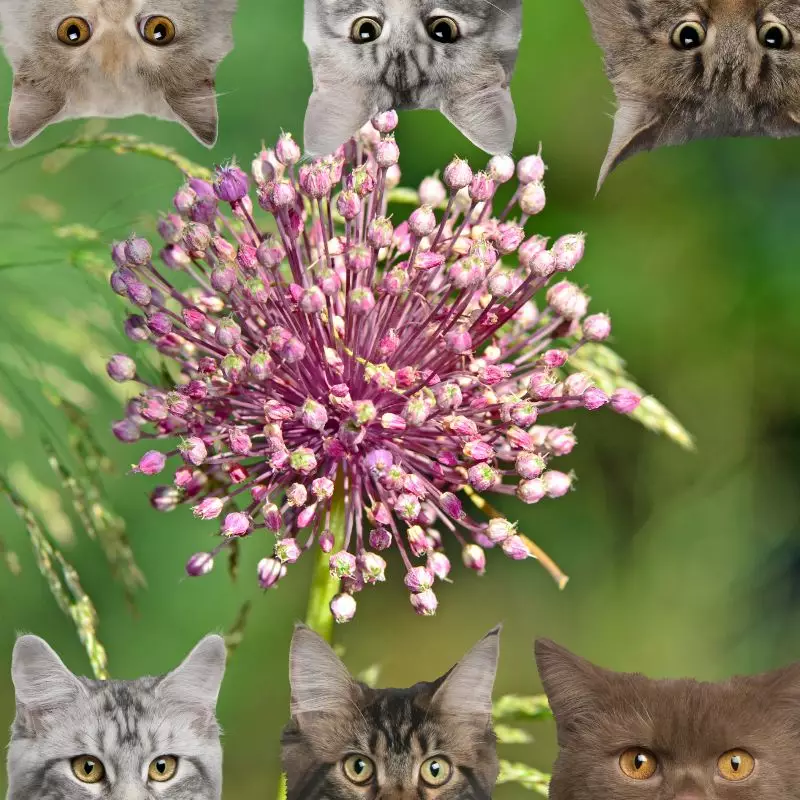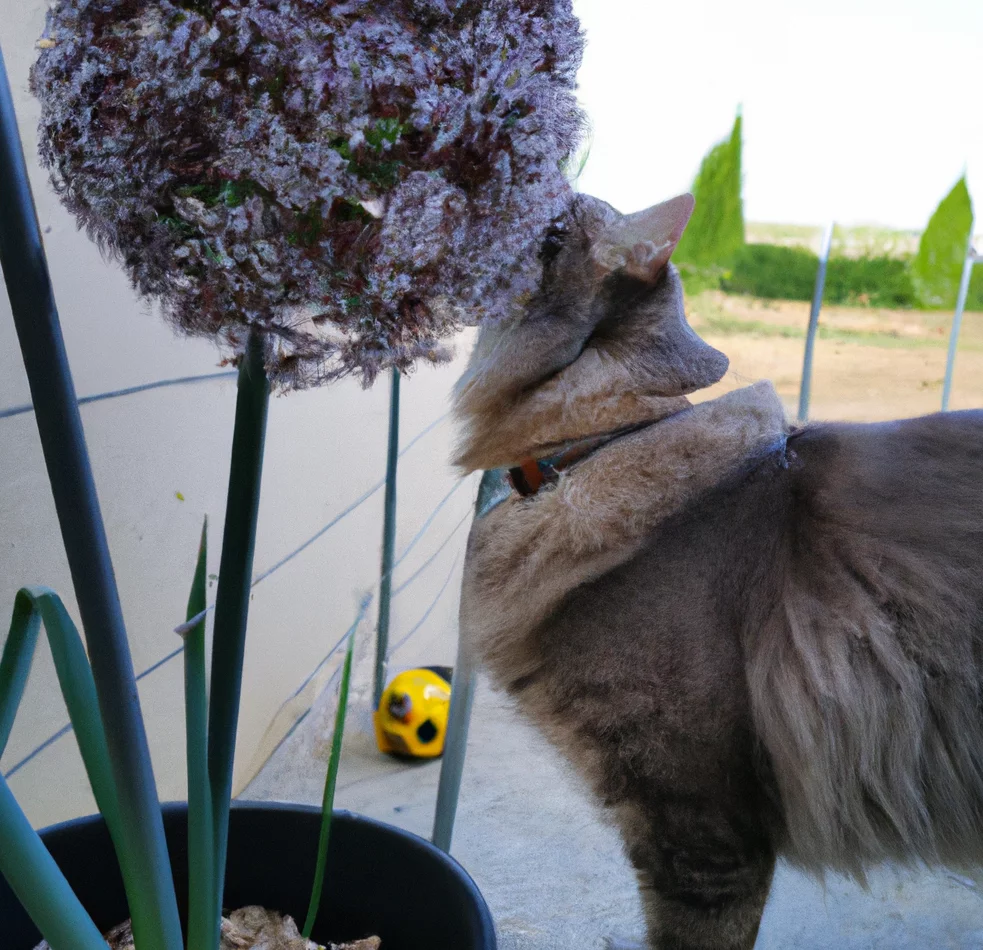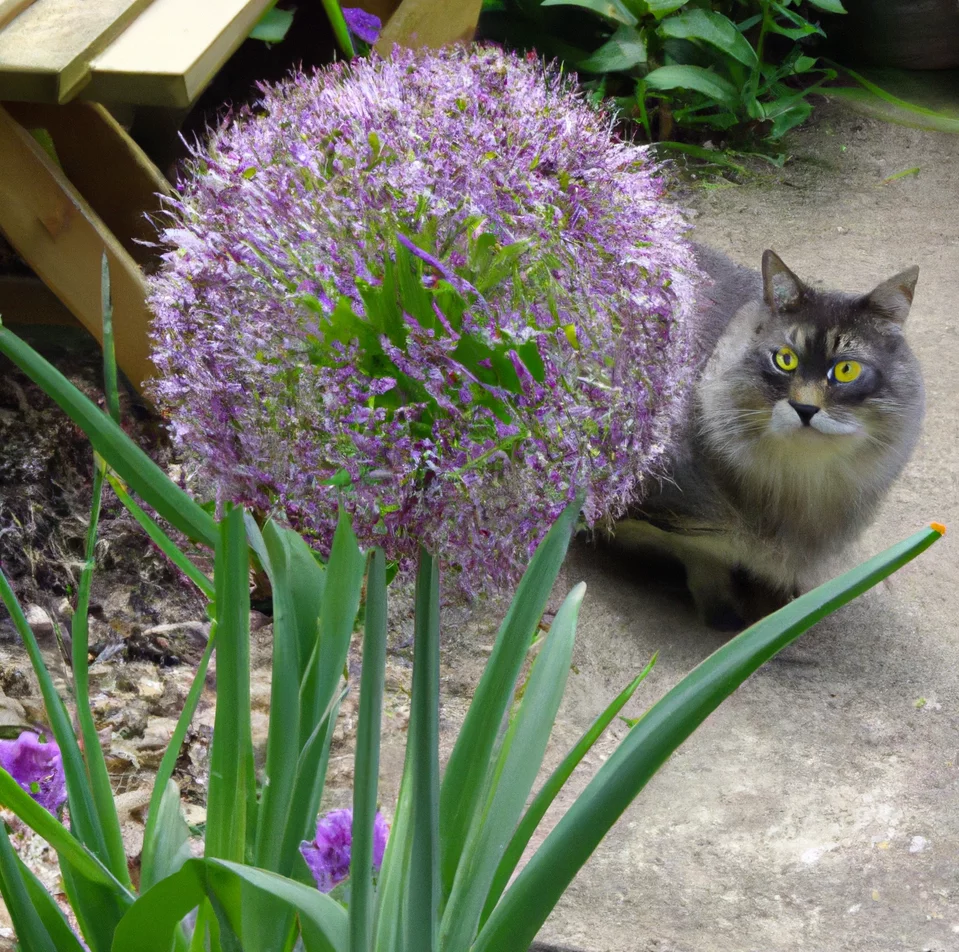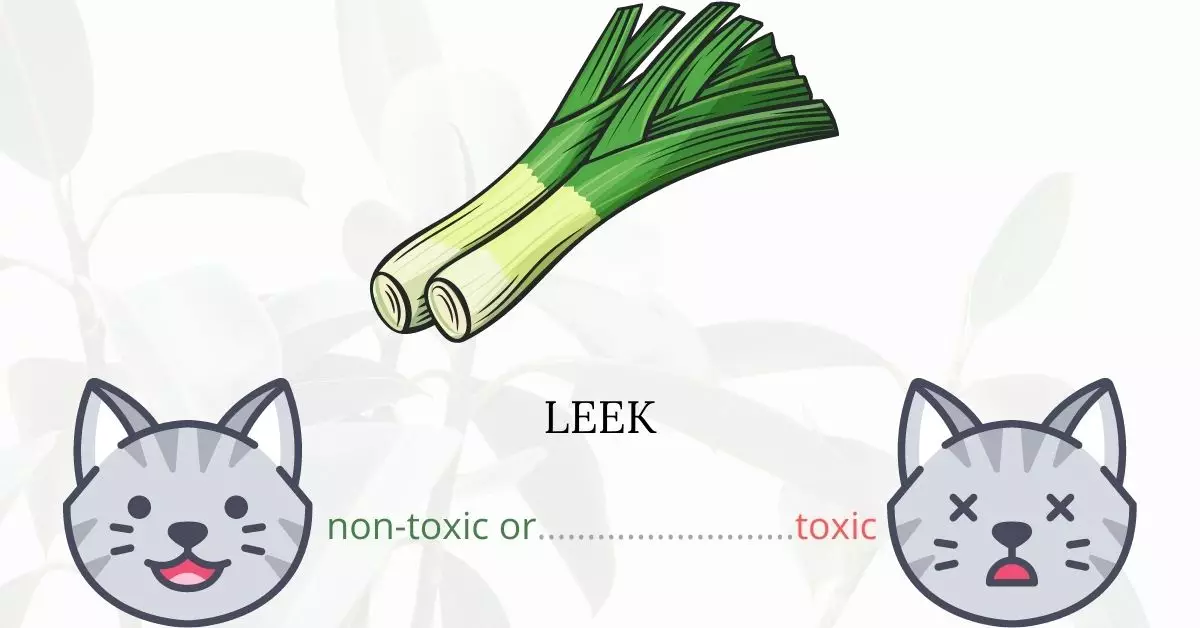Yes, leeks are toxic to cats. While these vegetables are regularly incorporated in human dishes, for cats, ingestion can lead to severe health complications.
It is important to note that this article has been written in collaboration with a team of experienced DVMs (doctors of veterinary medicine). Through their valuable insights and contributions, we are able to offer accurate and up-to-date information about the potential risks associated with various plants, particularly leeks, and their effects on feline health. In addition, our findings are also supported by research from high-authority websites such as ASPCA and PetMD.
The primary toxic component in leeks is n-propyl disulfide. This compound induces oxidative damage to a cat’s hemoglobin, the protein in red blood cells responsible for oxygen transportation. Consequently, the affected blood cells become less efficient in distributing oxygen from the lungs to the rest of the body, which can potentially lead to oxygen deficiency or even hemolytic anemia. Most cases of leek poisoning in cats arise from them consuming leeks from gardens or household settings, but it can also occur if they consume cooked dishes containing leeks.
Clinical Signs of Leek or Elephant Garlic Poisoning in Cats

If your cat has come into contact with or consumed leeks or elephant garlic, it may not exhibit immediate symptoms. The delay in onset can make it challenging to identify the cause of their distress. However, a distinct sign indicating the consumption of these plants is the scent of onions or garlic in their vomit or excrement. The toxic component in leeks and elephant garlic, n-propyl disulfide, impacts the hemoglobin in the cat’s red blood cells, leading to a range of symptoms. Here’s a breakdown of the signs and their associated causes:
- Depression: Due to the body’s struggle to efficiently transport oxygen, the cat might feel lethargic and exhibit signs of depression.
- Loss of Appetite: The feeling of discomfort or illness can make the cat reluctant to eat.
- Jaundice: A yellowing of the eyes, skin, and mucous membranes caused by the destruction of red blood cells, leading to an accumulation of bilirubin.
- Anemia: Due to the damage to red blood cells, the cat may develop a reduced ability to transport oxygen, resulting in anemia.
- Fatigue: Resulting from the reduced capacity of the blood to carry oxygen, leading to decreased energy levels.
- Tachypnea (Rapid Breathing): As a compensatory mechanism, the cat might breathe faster to intake more oxygen when the red blood cells fail to adequately supply it.
- Dyspnea (Shortness of Breath): Difficulty in breathing resulting from the decreased oxygen transport capacity of the blood.
- Abdominal Discomfort: This can be a direct result of the irritation caused by the toxic components on the gastrointestinal system.
- Tachycardia (Irregular Heartbeat): A faster or irregular heartbeat as the heart tries to pump more blood to compensate for the reduced oxygen supply.
- Cyanosis: Bluish discoloration of mucous membranes or skin, a clear indicator of a lack of oxygen in the body.
- Discoloration in Urine & Hemoglobinuria: As damaged red blood cells break down, hemoglobin is released and may be filtered by the kidneys, leading to discolored urine.
First Aid and Treatment of Leek or Elephant Garlic Poisoning in Cats

When your cat shows indications of plant poisoning, it is indeed critical to take him to the veterinary clinic. The cat will be closely monitored by the veterinarian to ensure that no signs of anemia develop.
To relieve your cat’s symptoms, your veterinarian may prescribe activated charcoal, intravenous hydration therapy, and other drugs. Vitamin C may also be required to lower methemoglobin levels in your cat’s body. Supplemental oxygen therapy may be provided to your cat if necessary until his blood cells are restored and he can carry oxygen to all parts of his body.
Recovery from Leek or Elephant Garlic Poisoning in Cats

The danger of anemia for your cat is substantial because of the potential lag time between consumption of leeks and the onset of symptoms. Your cat can avoid anemia by starting medication before its red blood cells start to break down. If your cat received fast and appropriate medical care, he or she will recover completely.
Prevention of Leek or Elephant Garlic Poisoning in Cats
Keep your cat away from leeks and other members of the allium family of plants. Because your food may include leeks or other potentially hazardous chemicals, avoid leaving it unattended. Despite the fact that leeks are highly poisonous to cats, they are attracted to their smell, and there is a high risk that your cat will eat enough of them to become poisoned.
If you love plants but have cats at home, check out these lists:





